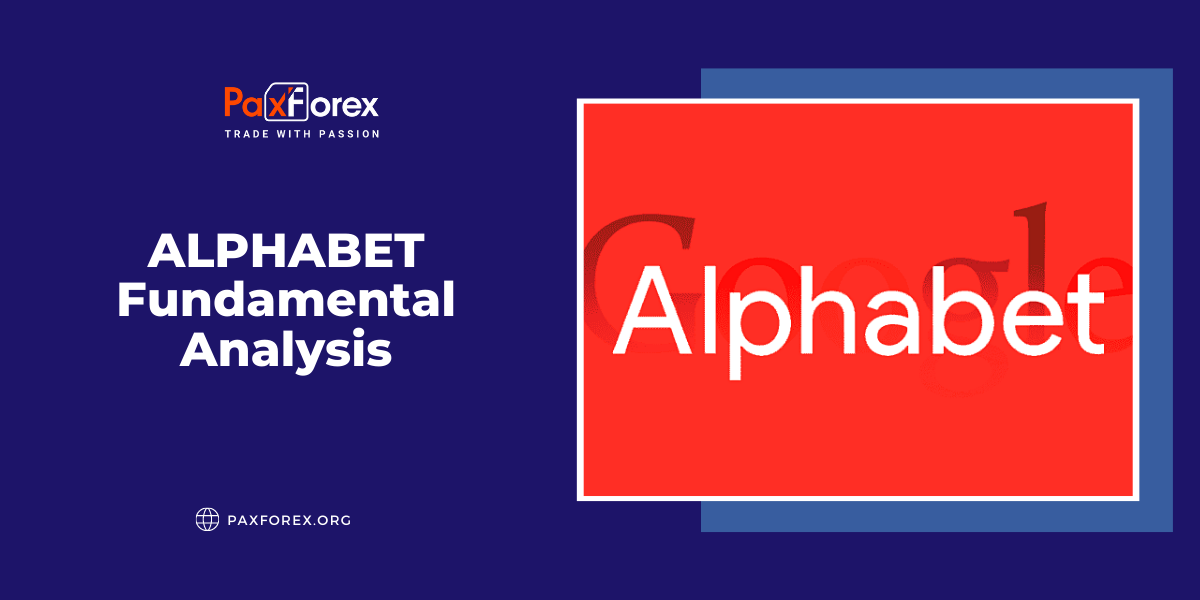
Source: PaxForex Premium Analytics Portal, Fundamental Insight
The market is increasingly worried about a weakening economy and the possibility of a recession. This is becoming a major topic of conversation among executives at almost every earnings meeting this quarter. Advertising, in particular, is preparing for tough conditions, and companies have begun aggressively cutting their advertising spending.
But not all advertising companies are created equal -- Alphabet can surprisingly withstand declining ad spending. Here's why.
In tough times, companies understandably try to spend less money, and advertising can be one way to tighten the belt. But few things in life are the same, and not all advertising will be cut to the same degree.
For example, executives at Procter & Gamble recently talked about how the company has cut its advertising spending but reallocated funds by shifting them from broadband television to digital formats, where the return on investment is easier to track.
The recession could cut advertising spending across the board. But low-quality ad platforms, those with smaller audiences or lacking the ability to measure and track advertising, would be hit hardest.
Fortunately for Alphabet, the company runs the digital playground we call the Internet. According to SEMrush, Google.com and YouTube.com are the two most visited sites in the world as of June 2022, and it's not even close.
The two sites were visited by about 94 billion users in June, while the site ranked third was only 10.6 billion, which shows how big of a gap there is between Alphabet and the rest. Similarweb statistics show that engagement is also high. Users spend nearly 11 minutes browsing nearly nine pages each time they visit Google.com. Meanwhile, users spend almost 22 minutes each time they visit YouTube, viewing about 12 pages.
We can't speak for marketing departments around the world, but it seems that Google and YouTube will be the last platforms on which ad spending will decrease because they are the most popular with viewers.
Alphabet acknowledged the potential economic factors that could arise in the second quarter, but the numbers for the quarter suggest that business is holding up. Google generated $56.3 billion in ad revenue in the second quarter, up 12 percent from a year ago, and YouTube ad revenue rose 4 percent to $7.3 billion.
Yes, total revenue grew only 16% in the second quarter (not including the 3% currency impact), which is below the company's average annual growth rate of 23% over the past three years. But Alphabet is perhaps best positioned to weather any economic storm that hits the advertising industry.
Investors can get a great buying opportunity if the stock continues to fall because of recession fears. The median price-to-earnings (P/E) ratio of stocks over the past decade has been 27, but today the stock is below that level, with a P/E of 22:
On the one hand, the lower valuation is fair as growth has slowed; analysts believe the company's earnings per share (EPS) will grow at an average of 11-12% per year over the next three to five years. Over the past decade, the company's EPS growth has averaged 20% annually.
So the stock may not be an attractive bargain, but one could argue that its valuation today is still reasonable, despite the slowdown in growth. The stock will become even more attractive if it falls even more. Investors get a technology company that holds a near-monopoly on two major areas of the advertising business. You will sleep much more soundly at night owning Alphabet stock than perhaps any other ad stock on Wall Street.
As long as the price is above the 119.00 level, follow the recommendations below:
- Time frame: D1
- Recommendation: long position
- Entry point: 122.03
- Take Profit 1: 125.00
- Take Profit 2: 129.00
Alternative scenario:
If the level of 125.00 is broken-down, follow the recommendations below:
- Time frame: D1
- Recommendation: short position
- Entry point: 119.00
- Take Profit 1: 116.00
- Take Profit 2: 114.00













